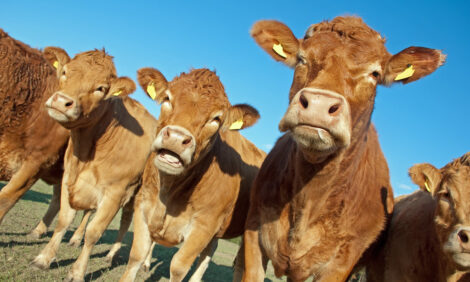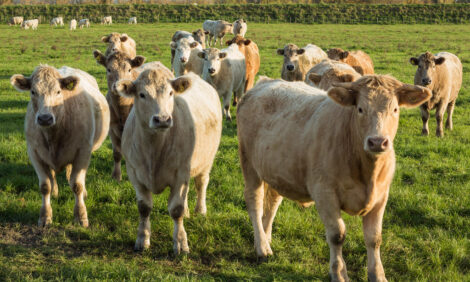



World Dairy Forum Discusses EU Dairy Developments
EU - Last Friday, the European Dairy Association (EFA) organised its annual World Dairy Forum in Ljubljana. For this year’s edition, EDA selected three topics with potentially high impact for the EU dairy sector in the years to come, namely the dairy industry in Southeast Europe, the abolition of the milk quota and food wastage reduction. A number of renowned speakers from the academic, political and professional world shared their insights.In the first session, the three speakers sketched the current situation of the dairy industry in Southeast
Europe. Mr Franc Bogovic, Minister for Agriculture and Environment in Slovenia said that big leaps
have already been taken in Slovenia over the last couple of years for a structured and qualitative milk
production.
Mr Van Berkum from the International Policy Division at LEI, and Mr Vucak, CEO Meggle
for Eastern Europe, then shared an overview of the current status of the milk industry in several
Southeast European countries and concluded that, differences per country put aside, the scale and
quality in all parts of the dairy chain need to be improved for these countries to be able to globally
compete.
Speakers from the second session on the European dairy scene after the abolishment of the milk
quota, agreed that there will be an increase in produced milk in Europe but that we should not expect a
huge boom.
As the European market is quite saturated already, it looks like most of the extra volume
will need to be exported and that the growth will primarily be in cheese and milk powder production.
European producers are already heavily investing in powder production. One of the countries where
milk production is very likely to increase the most is Ireland, and Jim Woulfe, CEO of Dairygold,
presented the audience with their plans for 2020.
In the final session, it was clear that food waste has become an important issue for Europe. Mrs Van
Tongelen from DG Sanco stated that, at all stages of the food chain, some resources do not enter in
the final product, and that we should therefore consult stakeholder how to tackle this at various levels
of the chain. She presented some initiatives that the government is undertaking. WRAP UK is already
focusing on reducing household food waste and has launched for example the
www.lovefoodhatewaste.com website.
And finally, Mr Valeur spoke about some of Arla’s initiatives on
education of consumers, adapting packaging to consumption volumes, and on application for product
flows that do not go into food or feed in biogas installations.
TheCattleSite News Desk


